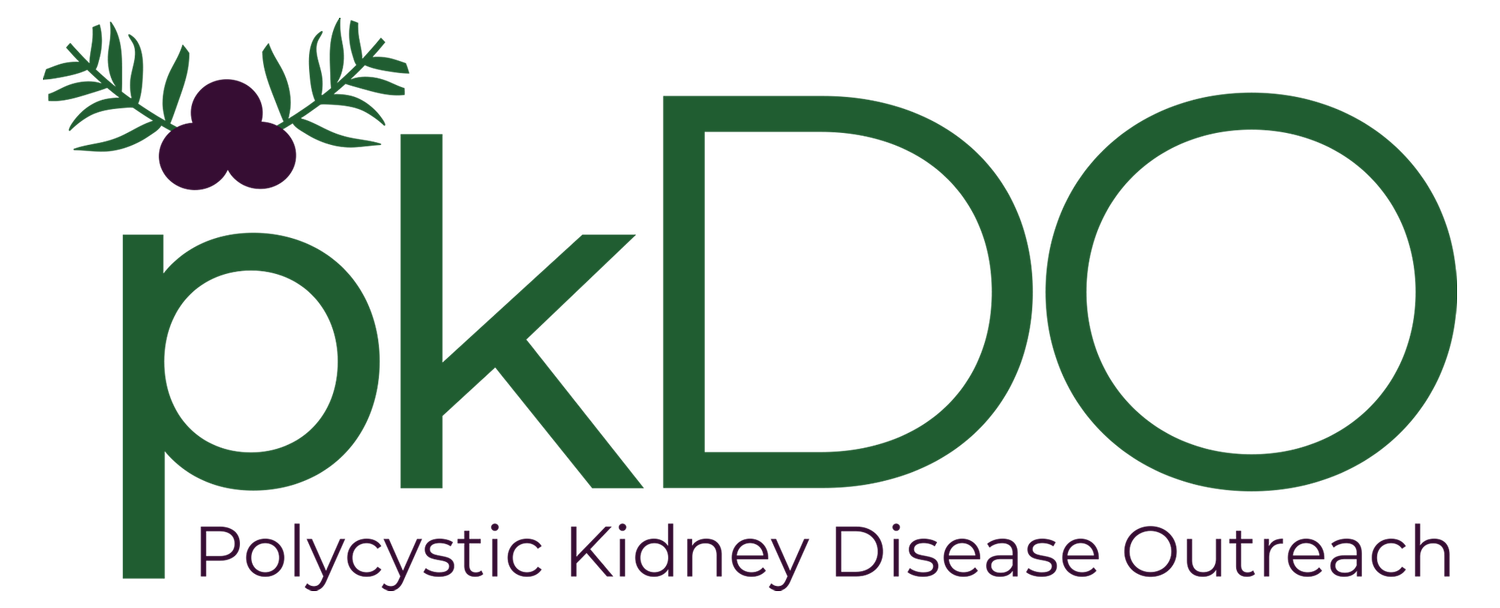The Meyer
Family Story
I’m a teacher in New York. I discovered I had Polycystic Kidney Disease when I was 21. I was getting tested to be a potential liver donor for my mom. I can vividly remember going to the doctor's office to scan my abdomen and within seconds they picked up dozens of cysts on my kidneys. It was pretty clear then that I had PKD.
I remember feeling like I had the wind knocked out of me and just being completely devastated. I wasn't sure what to do. I was grasping for a path forward.
My sister Molly and I both discovered we had PKD within about a month of each other. I think that created a unique bond over the last several decades as we've been on this journey. My other older sister also discovered she had PKD later. Both of my sisters have since had transplants with living donors. We know how lucky we are as a family to have that opportunity and that medical support.
Each day I try to do some form of exercise and movement of my body, but one of the lessons I've learned with PKD is moderation in everything. I'll go for a run in the morning, then I'll come back. I try to create space for stillness, whether it's a simple eight-minute meditation or some breath work. In terms of my diet, I try to eat clean. I try to keep my sugar intake down. I rarely eat fast food. I almost never drink soda. I'm not saying it's the path for everyone, but I just try, I know that whatever I put in my body, I'm asking my kidneys to process that. Any way I can help them and support them is a benefit to my whole being.
I know that whatever I put in my body, I'm asking my kidneys to process that. Any way I can help them and support them is a benefit to my whole being.
When my wife and I decided to have a family, we chose to do this through IVF.
At first, we had no intention of going through IVF. It's expensive and it's emotionally taxing. But we discovered this option where we could essentially test the embryos for PKD and then implant healthy PKD-free embryos.
We discovered this option where we could essentially test the embryos for PKD and then implant healthy PKD-free embryos. It was worth it to bring my son Liam into this world without PKD.
So that's what we did. Now, there were a lot of bumps along that road – we went through seven rounds. That's having like your heart broken seven times. But I would've gone through a hundred thousand more rounds to get to my son Liam. It was even harder on my wife, but it was well worth the challenges to bring him into this world without PKD. My son Liam is six years old, and my daughter Eleanor is three years old.
I get these yearly MRIs, which to me are pure reality checks with the disease. While that can be very hard to handle, especially if I feel the disease is progressing too quickly, it's often the thing that reminds me of why I'm trying to maintain a healthy diet and lifestyle.
It’s the things we deny that have this great power over us. But when things come out into the open, they dissolve, like snow melting on the sidewalk.
Contribute to the Meyer Families efforts to support pkDO
PKD Outreach Foundation is a 501(c)3 nonprofit organization, Federal Tax I.D. 87-1389001. Donations to PKD Outreach Foundation are tax deductible to the fullest extent of the law.
How We Fight PKD
There’s so much more you can do to fight PKD, at every step of the way.
-

Support Live Kidney Donations
pkDO is partnering with transplant centers to implement proven methods to increase live kidney donation. By increasing live donation we will effectively reduce the wait for a deceased donor by years.
-

Slow the Progression
pkDO is actively providing PKD impacted families with the necessary resources and information to slow the progression of PKD in young adults. Learn more about how you can maintain healthy kidney function for decades longer. After the diagnosis, there is still something you can do. Lifestyle and regimen changes help slow the progression of PKD.
-

End PKD in Your Family
pkDO is actively engaging with PKD impacted families to provide the necessary resources, including preimplantation genetic testing. Our goal is to reduce the risk of PKD being passed down to future generations from 50% to 0%. Learn more about how you can put an end to PKD in your family.




